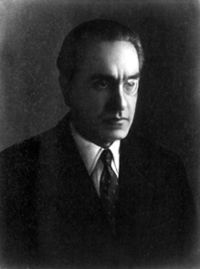
This is the second, revised edition of Metaphysics of Battle, Victory & Death in the World of Tradition. In this book Evola considers the spiritual aspects of war in different spiritual traditions, including the Vedic, Iranian, Islamic and Catholic. In so doing he concludes that war can, in certain circumstances, have a ‘sacred character’ through which man may achieve self-realisation. In the second edition we have added a large number of new footnotes and a comprehensive index. This collection of essays is about war from a spiritual and heroic perspective. Evola selects specific examples from the Aryan and Islamic traditions to demonstrate how traditionalists can prepare themselves to experience wars in a way that could allow them to transcend the limited possibilities of life in our materialistic age, entering the world of heroism, i.e., achieving a higher state of consciousness, an effective realisation of the meaning of life. His call to action, however, is not that of today’s armies, which ask nothing more of their soldiers than to become mercenaries in the service of a decadent class. Rather, Evola presents the warrior as one who lives a cohesive and integrated way of life – one who adopts a specifically Aryan view of the world, which sees the political aims of a war not as war’s ultimate justification, but as being merely a means through which the warrior realizes his calling to a higher form of existence.
Author

Julius Evola (19 May 1898 – 11 June 1974), born Giulio Cesare Andrea Evola, was an Italian philosopher and esoteric scholar. Born in Rome to a family of the Sicilian landed gentry, Evola was raised a strict Catholic. Despite this, his life was characterised by 'an anti-bourgeois approach' hostile to both 'the dominant tradition of the West—Christianity and Catholicism—and to contemporary civilization—the 'modern world' of democracy and materialism'. By turns 'engineering student, artillery officer, Dadaist poet and painter, journalist, alpinist, scholar, linguist, Orientalist, and political commentator', he has been described as a 'rare example of universality in an age of specialization'. Yet behind it all lay a singular emphasis on, and pursuit of, a 'direct relationship to the Absolute'. For Evola, 'the center of all things was not man, but rather the Transcendent.' This metaphysical conviction can be seen to have determined both Evola's stance on socio-political issues, and his antipathetic attitude towards 'all professional, sentimental and family routines'. The author of many books on esoteric, political and religious topics (including The Hermetic Tradition, The Doctrine of Awakening and Eros and the Mysteries of Love), his best-known work remains Revolt Against the Modern World, a trenchant critique of modern civilisation that has been described as 'the gateway to his thought'. Since his death, also in Rome, his writings have influenced right-wing, reactionary and conservative political thought not only in his native Italy, but throughout continental Europe and, increasingly, the English-speaking world. Nevertheless, he should not be considered primarily as a political thinker, but rather as an exponent of the wider Traditionalist School that encompasses the work of such individuals as René Guénon, Titus Burckhardt and Frithjof Schuon.